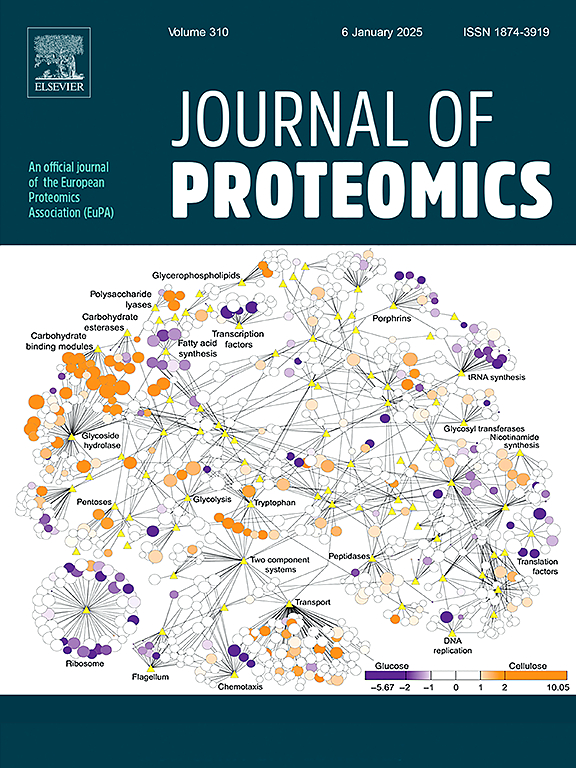Probiotic Bacillus cereus regulates metabolic disorders and activates the cholic acid-FXR axis to alleviate DSS-induced colitis
IF 2.8
2区 生物学
Q2 BIOCHEMICAL RESEARCH METHODS
引用次数: 0
Abstract
Inflammatory bowel disease is characterized by severe imbalance of intestinal flora and metabolic disorders. Recent studies have demonstrated that probiotics can effectively alleviate inflammatory bowel disease by restoring the intestinal flora structure and modulating the immune response. However, the role of probiotics in regulating intestinal metabolism disorders is still unclear. This study explores the role of probiotic B. cereus in alleviating DSS-induced colitis. The findings indicated probiotic B. cereus treatment mitigated tissue damage and apoptosis during inflammation. Metabolome and transcriptome analysis revealed B. cereus activated the cholic acid-FXR axis by increasing cholic acid levels, which promoted the gene expression level of NF-κB inhibitor α, reduced the IL-1β, IL-6, IL-18 and TNF-α concentrations. Furthermore, it effectively mitigated the DSS-induced disruption of bile acid metabolism, arginine metabolism, and linoleic acid metabolism. This study explores the effect and mechanisms of probiotic B. cereus on alleviating DSS-induced colitis. It aims to provide a theoretical basis for microbial therapy in inflammatory bowel disease.
Significance
This study used metabolome and transcriptome to reveal the roles and mechanisms, which probiotic Bacillus cereus modulates metabolic disorders and alleviate DSS-induced colitis. We identified the cholic acid-FXR axis as an important target for alleviating DSS-induced colitis. These findings provide new insights into microbial treatment strategies for IBD.

蜡样芽孢杆菌调节代谢紊乱,激活胆酸- fxr轴,减轻dss诱导的结肠炎。
炎症性肠病的特点是肠道菌群严重失调和代谢紊乱。最近的研究表明,益生菌可以通过恢复肠道菌群结构和调节免疫反应来有效缓解炎症性肠病。然而,益生菌在调节肠道代谢紊乱中的作用尚不清楚。本研究探讨益生菌蜡样芽孢杆菌在缓解dss性结肠炎中的作用。结果表明,益生菌蜡样芽孢杆菌治疗减轻了炎症期间的组织损伤和细胞凋亡。代谢组学和转录组学分析显示,蜡样芽孢杆菌通过增加胆酸水平激活胆酸- fxr轴,促进NF-κB抑制剂α基因表达水平,降低IL-1β、IL-6、IL-18和TNF-α浓度。此外,它有效地减轻了dss引起的胆汁酸代谢、精氨酸代谢和亚油酸代谢的破坏。本研究探讨益生菌蜡样芽孢杆菌对缓解dss性结肠炎的作用及其机制。旨在为炎症性肠病的微生物治疗提供理论依据。意义:本研究利用代谢组学和转录组学方法揭示蜡样芽孢杆菌调节代谢紊乱,减轻dss诱导的结肠炎的作用和机制。我们发现胆酸- fxr轴是缓解dss诱导结肠炎的重要靶点。这些发现为IBD的微生物治疗策略提供了新的见解。
本文章由计算机程序翻译,如有差异,请以英文原文为准。
求助全文
约1分钟内获得全文
求助全文
来源期刊

Journal of proteomics
生物-生化研究方法
CiteScore
7.10
自引率
3.00%
发文量
227
审稿时长
73 days
期刊介绍:
Journal of Proteomics is aimed at protein scientists and analytical chemists in the field of proteomics, biomarker discovery, protein analytics, plant proteomics, microbial and animal proteomics, human studies, tissue imaging by mass spectrometry, non-conventional and non-model organism proteomics, and protein bioinformatics. The journal welcomes papers in new and upcoming areas such as metabolomics, genomics, systems biology, toxicogenomics, pharmacoproteomics.
Journal of Proteomics unifies both fundamental scientists and clinicians, and includes translational research. Suggestions for reviews, webinars and thematic issues are welcome.
 求助内容:
求助内容: 应助结果提醒方式:
应助结果提醒方式:


